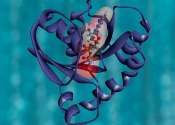Scientists develop new device to detect brain tumors using urine
Researchers at Nagoya University in Japan have used a new device to identify a key membrane protein in urine that indicates whether the patient has a brain tumor. This protein could be used to detect brain cancer, avoiding ...








